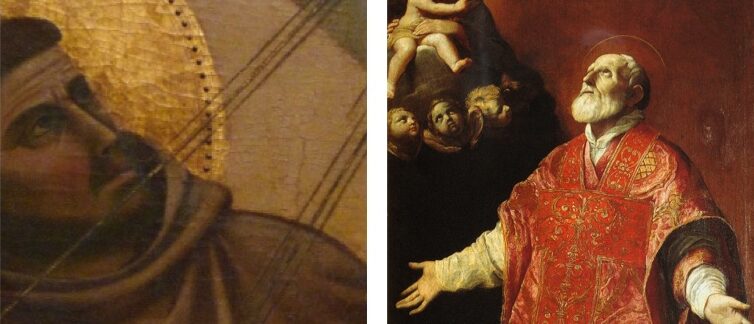Matins for the Feast of St. Thomas the Apostle in the old Rite Roman Breviary includes this reading today:
For I think that God has exhibited us apostles as last of all, like men sentenced to death, because we have become a spectacle to the world, to angels, and to men. We are fools for Christ’s sake, but you are wise in Christ. We are weak, but you are strong. You are held in honor, but we in disrepute. To the present hour we hunger and thirst, we are poorly dressed and buffeted and homeless, and we labor, working with our own hands. When reviled, we bless; when persecuted, we endure; when slandered, we entreat. We have become, and are still, like the scum of the world, the refuse of all things.—1 Cor 4:9-13.
The first “fool for Christ” was the Apostle Paul. In fact, verse 10 above in the Greek reads μωροὶ διὰ Χριστόν (moroi dia Christon) which literally means “morons for Christ.” Moroi is the plural for moros which is the root of our English word, moron. If you don’t believe me, just search the etymology of the English word “moron” and you will find it comes from “moros” meaning “foolish” in Greek. Again, St. Paul calls all the first Apostles (including himself) “fools for Christ’s sake” in the above passage.
The Western Church has also produced other fools for Christ, like St. Francis of Assisi (top left) and St. Philip Neri (top right.) Both of them believed (and acted) like mortifying the will was as important (if not more important) than mortifying the body. For this reason, those who followed St. Francis and St. Philip were often expected to carry a smaller (but similar) version of the cross they carried, namely, one of making others believe they were not saints, but just fools.
On the other hand, those theologians are wrong who believe “a fool for Christ” is a clown who has chosen to live a homeless life for nihilistic reasons. Others believe he is a a hippy who mocks the world and himself. But a fool for Christ is actually not a fool at all. Look at St. Paul, a man who was a theological expert who spoke many languages and probably had all of the Hebrew Scriptures memorized. He was a genius, yet also cared not for the opinions of the world.
St. Philip Neri knew the writings of the Fathers and St. Thomas Aquinas forwards and backwards. Thus, the unusual penances he took upon himself and gave were not meaningless or silly or antirational. All his unusual moves of detachment (like shaving half his beard) were for deeper attachment to Christ. Perhaps they were supra-rational, but not anti-rational.
The best definition I have seen for a fool for Christ is “one who feigns madness to mock the world.” Look at the two verbs in that sentence: To feign madness means the fool for Christ is actually not mad. Thus, he’s not your local schizophrenic who happens to read his Bible on the street-corner. (That person might be holy, too, but he doesn’t fit the classic definition of a “fool for Christ.”) The other verb is “to mock.” The true “fool for Christ” has decided “to mock the world.” This means he is not superficially friendly, as most people make St. Francis to be. The real “fool for Christ” stands as a prophet above and against the world and the flesh and the devil. In other words, as you mock the fool for Christ, he is actually mocking you. (You just don’t realize it until later because you’re too addicted to worldly opinions. And then all those worldly opinions turn out to be wrong.)
The Russians have an entire category for such holy fools and they call them юродивый (yurodivy) in the Russian. My new friend Brother John the Baptist is a traveling hermit who is somewhat of a traveling fool-for-Christ hermit. He is an Eastern Catholic monk missionary I met wandering around France this past summer. Br. John the Baptist gives a very good description of some holy fools in Church history in this video.
